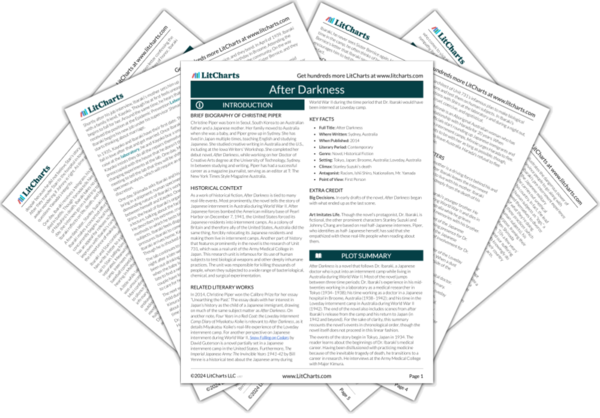Internment Quotes in After Darkness
Johnny Chang [….] was known to everybody and moved among the Japanese, Chinese, native, and even white population with ease. His father was a Chinese immigrant who’d made a modest fortune on the goldfields and moved to Broome to start a restaurant, eventually marrying the Japanese daughter of a laundry owner.
It was strange I hadn’t recognised Johnny straight away. Perhaps it was the difference in his attitude. In Broome, he’s always been easygoing, but here it was as if he were another man.
Sister Bernice gazed at me. “Don’t you realise what this means? We’re at war with Japan now. You mustn’t stay here. It isn’t safe.” Perhaps mistaking my silence for shock, she continued to speak. “They’ll come for you—they’ll put you away. You should have left a long time ago.”
Her face was creased in anguish. I felt a great tenderness towards her at that moment. “Thank you for your concern, Sister, but you need not worry—I have prepared myself for this outcome.”
We reached the junction at the middle of camp and I looked back. The blur of my friends pressed against the fence. The sweep of ochre dirt. The rows of galvanized-iron huts. The guard tower rising up beyond the fence. It was bleak, but it was home. A place where I belonged.












